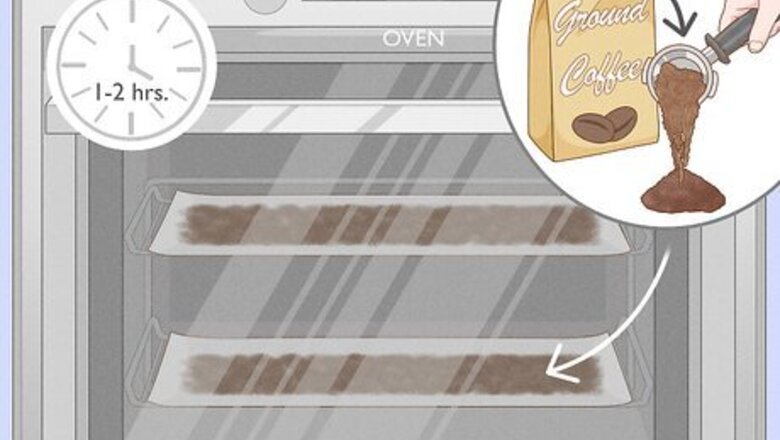
views
- Bake used coffee grounds in a 175 to 200 °F (79 to 93 °C) oven for 1 to 2 hours or until they completely dry out, then place them into a heat-safe bowl.
- Form the grounds into a small hill and add a candle wick or a few drops of lighter fluid to the center. Use a lighter or match to light the middle of the grounds.
- Place the grounds on your windowsill or in a place outside so the smoke blows towards you to ward off mosquitos, wasps, and other insects.
How to Burn Coffee Grounds
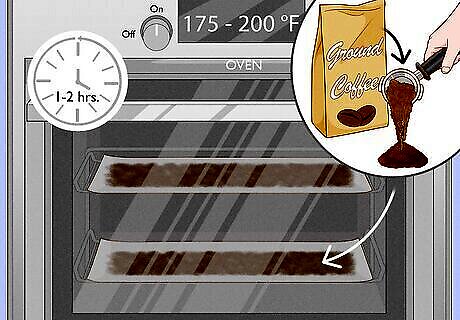
Dry out used coffee grounds by baking them on low heat in the oven. Remove the used grounds from the coffee maker and sprinkle them in a thin layer on an aluminum baking sheet. Put them in an oven set to 175 to 200 °F (79 to 93 °C) and let them dry out for 1 to 2 hours. Alternatively, place a paper towel on the baking sheet, spread out the grounds, and let them sit for 1 to 2 weeks in a non-humid room in your house. You can also use fresh dry grounds straight from the bag or tin.
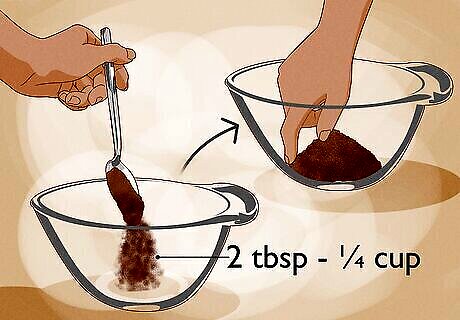
Place the grounds in a heat-safe bowl and form them into a small hill. Place 2 tablespoons (10.6 g) to ¼ cup (20.5 g) of grounds in a small or medium-sized glass or ceramic container. Use your fingers to create a small hill out of the coffee grounds, with the peak in the middle of the container. Cloves are EPA-classified as minimum-risk pesticides and can also be used as an insect repellent. Sprinkle 1 tablespoon (6 grams) into your coffee grounds for added repelling power. Bay leaves also contain an oil that can repel common household mosquitos. Crush 1 or 2 bay leaves and add them to the mixture to amplify your repellent.
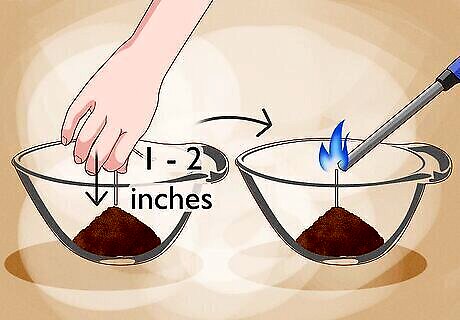
Add a wick or a few drops of lighter fluid to the grounds and light it. Stick a 1 to 2 in (2.5 to 5.1 cm) candle wick in the middle of the peak of the coffee grounds. If you’re using lighter fluid, be sure not to add more than a few drops or the grounds may burn too quickly. Use a lighter or match the light the center of the grounds. This will create smoke, which can deter mosquitos, cockroaches, ants, wasps, and other insects in the area from going near it. Coffee grounds contain caffeine and diterpenes, which act as a natural insecticide. The smoke also masks the scents that attract bugs, making it harder for them to locate their targets. Make sure the immediate area is free of animals or children and try to avoid leaving the fire unattended.
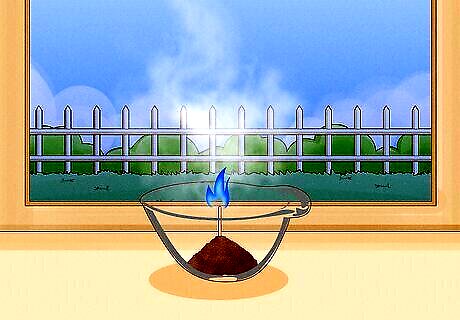
Place the coffee grounds in a spot upwind or near your window. If you’re sitting outside, place the coffee grounds so that the smoke blows towards you to ward off insects flying nearby. Placing the coffee grounds in an open window can help prevent bugs from entering your home. To increase the smoke and help the grounds smolder, cover the fire with a damp towel. For best results, burn coffee grounds while using other mosquito control methods like wearing an EPA-registered insect repellent.
Other Ways to Repel Insects with Coffee Grounds
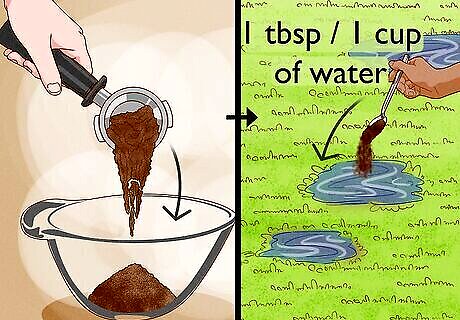
Add used coffee grounds to standing water around your home. If you have areas in your yard with stagnant water, where mosquitos often breed, sprinkle 1 tablespoon (5.3 g) of freshly used coffee grounds per 1 cup (0.24 L) of water. Used coffee grounds have been shown to kill mosquito larvae and slow down adult mosquitoes from laying eggs. One study found that light-roasted coffee grounds are most effective, but you can use any kind you’d like. Try not to add coffee to ponds or large pools of water that link to larger waterways or that animals need to survive. Another study found that coffee ground extract can deter the main pests of the green bean plant.
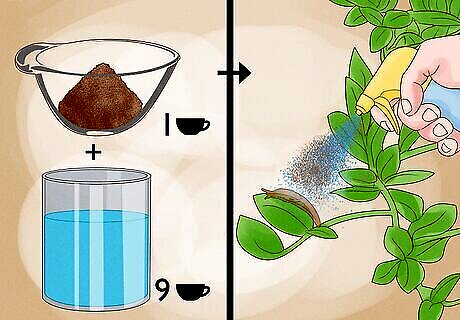
Spray 1 part dry coffee grounds and 9 parts water on plants to kill slugs. Add 9 cups (2.1 L) water to 1 cup (82 g) coffee grounds and spray the mixture on a sample of leaves on plants where slugs have been. Wait for a few days to see if there’s leaf burn or other damage, then apply it to all your plants. The caffeine can cause slugs to leave the treated soil and die. Add any leftover grounds to a compost container or worm bin to make a homemade compost that can improve your plants’ soil and growth. You can also add the used coffee grounds to acid-loving plants like hydrangeas and nutrient-hungry plants like roses. Caffeine can prevent weed growth, but it may also reduce plant growth, especially in tomatoes. While most of the caffeine in used coffee is transferred to the water during the brewing process, used grounds might still contain trace amounts.

















Comments
0 comment